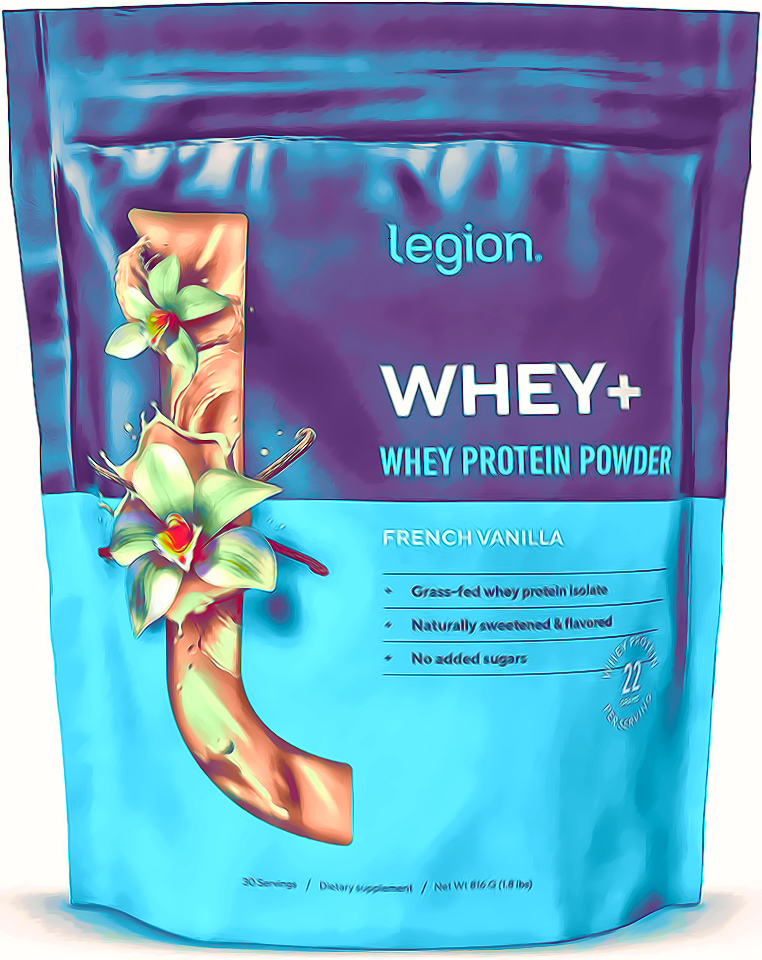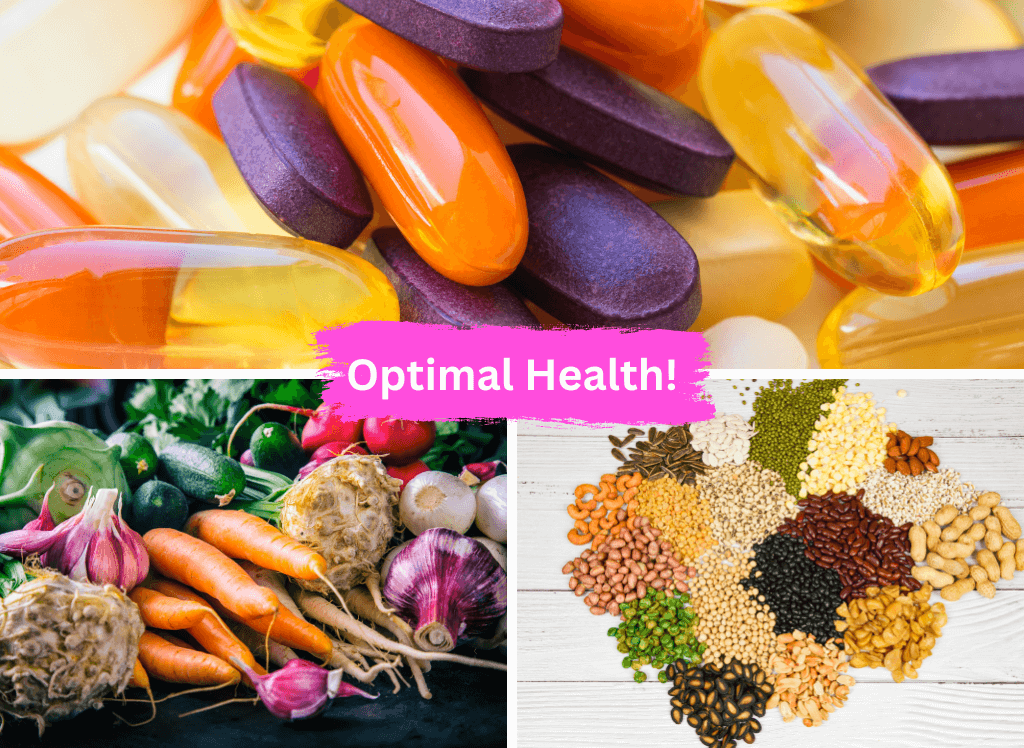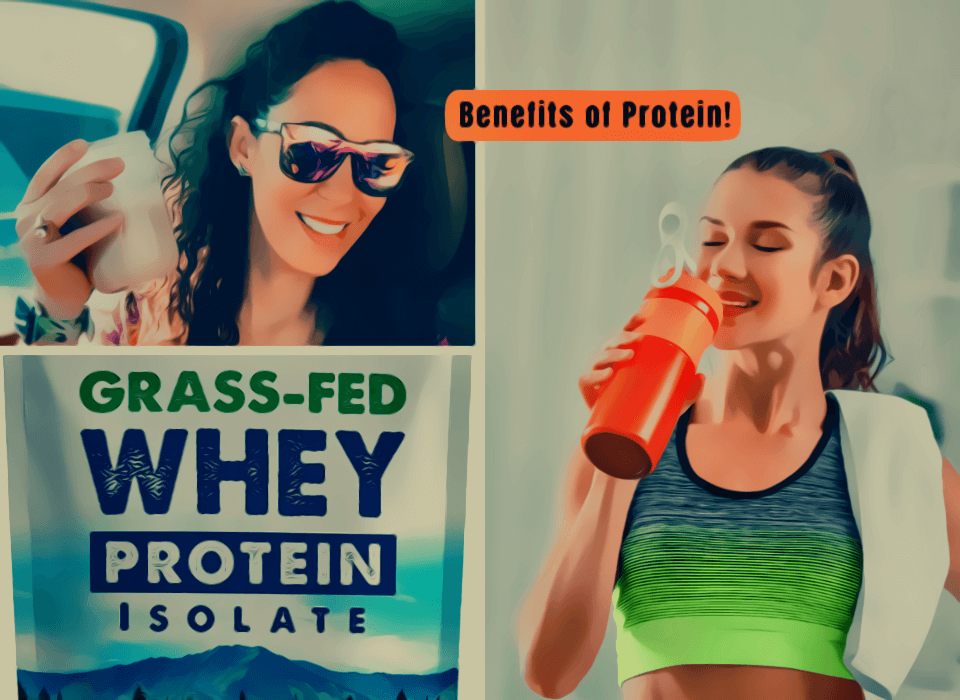Are you looking for the best lactose free protein powder? If so, you've come to the right place. This post will discuss the top EIGHT lactose-free protein powders on the market and what makes them stand out from the competition. We'll also provide tips on how to choose the right protein powder for your needs. So, whether you're a fitness enthusiast or just looking for a way to add more protein to your diet, read on for all the information you need!
Top 8 Best Protein Powders
Great Things to Know About Legion WHEY+Whey.Protein Powder
If you're looking for a protein powder that is both lactose free and high quality, Legion Whey+ is the perfect option for you.
This powder is made from whey protein isolate, which means that it is 90%+ protein by weight and contains almost no fat or carbs. Additionally, Legion Whey+ is made with milk from small Irish dairy farms, which produce some of the cleanest and healthiest dairies in the world. And, because it is 100% naturally sweetened and flavored, you can be sure that you're not ingesting any potentially harmful chemicals.
So, if you're looking for a protein powder that is both healthy and delicious, look no further than Legion Whey+.
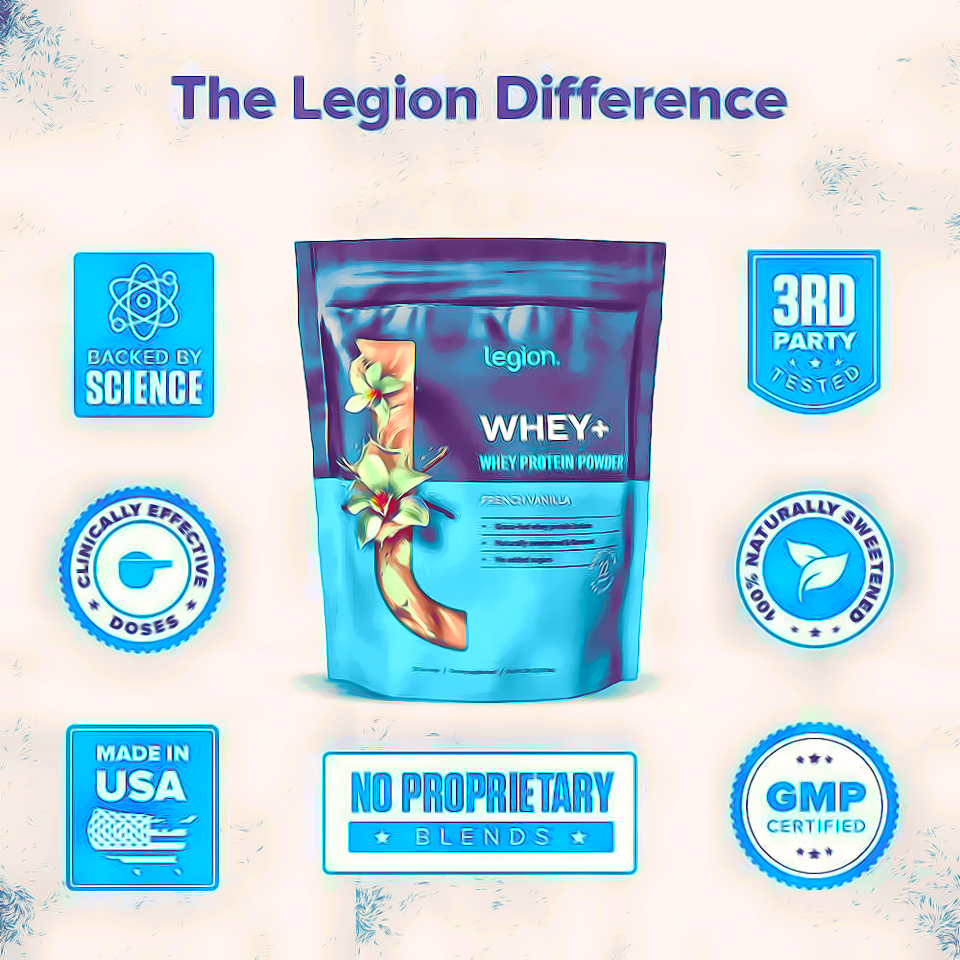
Pros
- A variety of flavors are available, including Dutch Chocolate, French Vanilla, and Birthday Cake.
- Easy to blend with milk or water
- Using milk from small, sustainable Irish farms
- Contains no GMOs, hormones, or antibiotics
Cons
- Stevia is used as a sweetener, which some people dislike for its aftertaste
- It contains more sodium than some protein powders
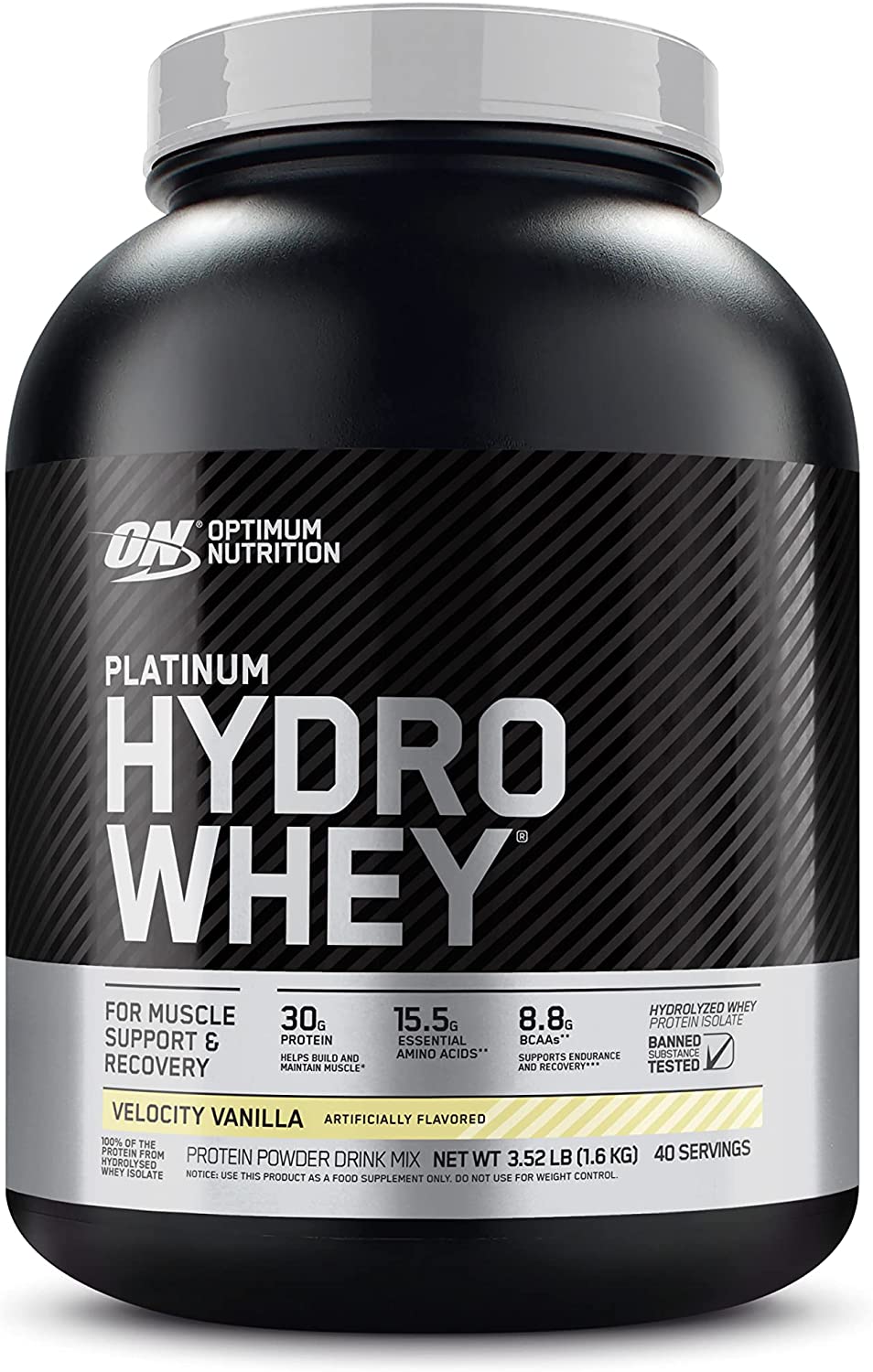
Optimum Nutrition Platinum Hydrowhey Protein Powder
Pormotes Muscle Recovery & Growth
Great things about this product
Looking for the best lactose free protein powder? Look no further than Optimum Nutrition Platinum Hydrowhey Protein Powder.
This protein powder is made with 100% hydrolyzed whey protein isolate, meaning it's easier for your body to absorb and put to use. Plus, it contains 30 grams of ultra-pure protein per serving, making it an ideal way to support your muscle-building goals.
Additionally, the powder boasts 15.5 grams of naturally occurring and added EAAS (essential amino acids), which help promote muscle recovery and growth.
Whether you're looking for a post-workout recovery aid, a between-meals snack, or simply want to up your protein intake, Optimum Nutrition Platinum Hydrowhey Protein Powder is a great choice.
Try it today and see the results for yourself!
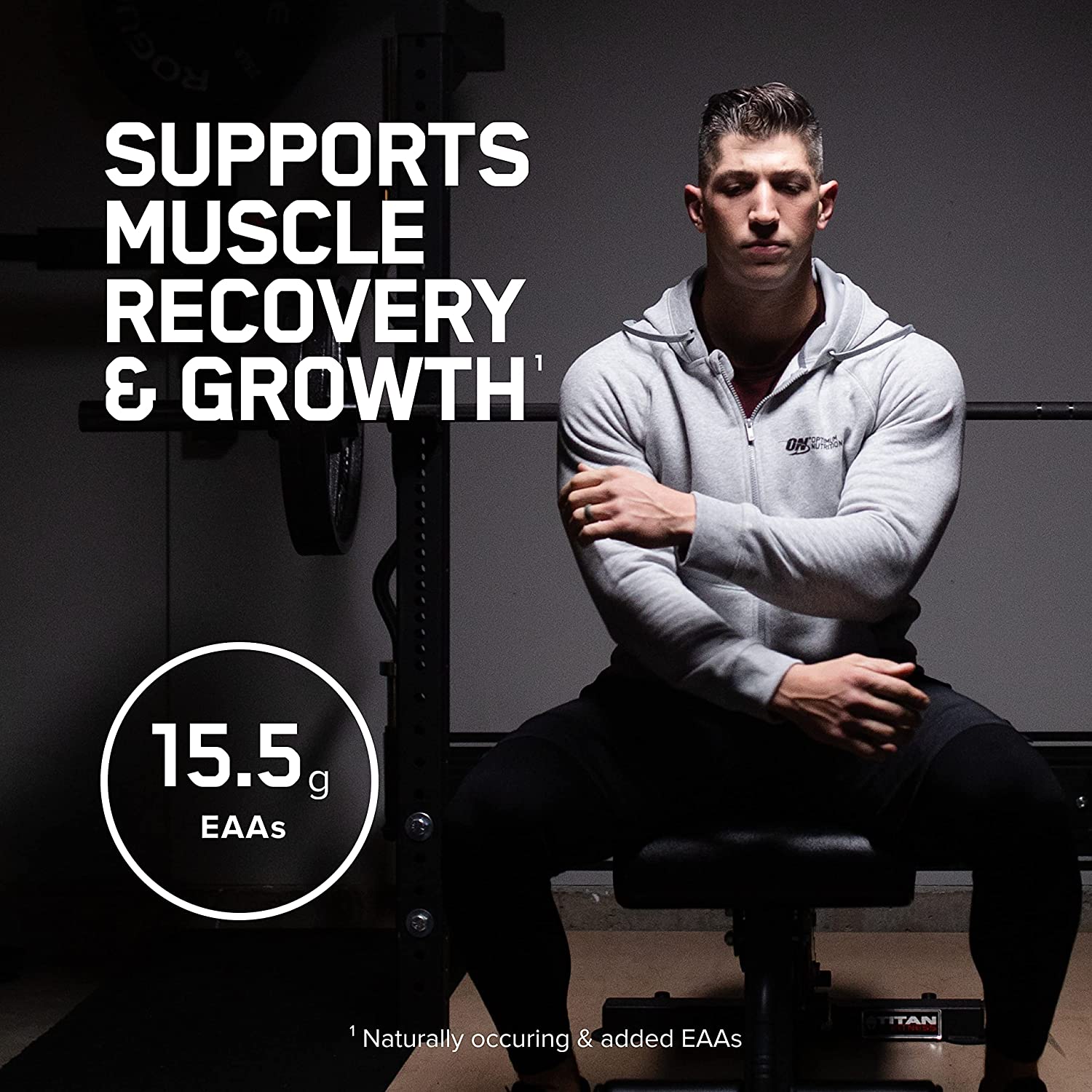
Good things to know
Optimum Nutrition produces High-quality BCAAs and glutamine products. Mostly the products contain essential micronutrients and non-essential branched- chain amino acids. Products are a good option for people following low-carb or low-fat diets because of their macronutrient composition.
Pros
- Protein-rich
- An excellent source of essential amino acids
- It blends easily with milk and water
- There are six flavors available (including Turbo Chocolate, Chocolate Mint, and Cookies and Cream Overdrive).
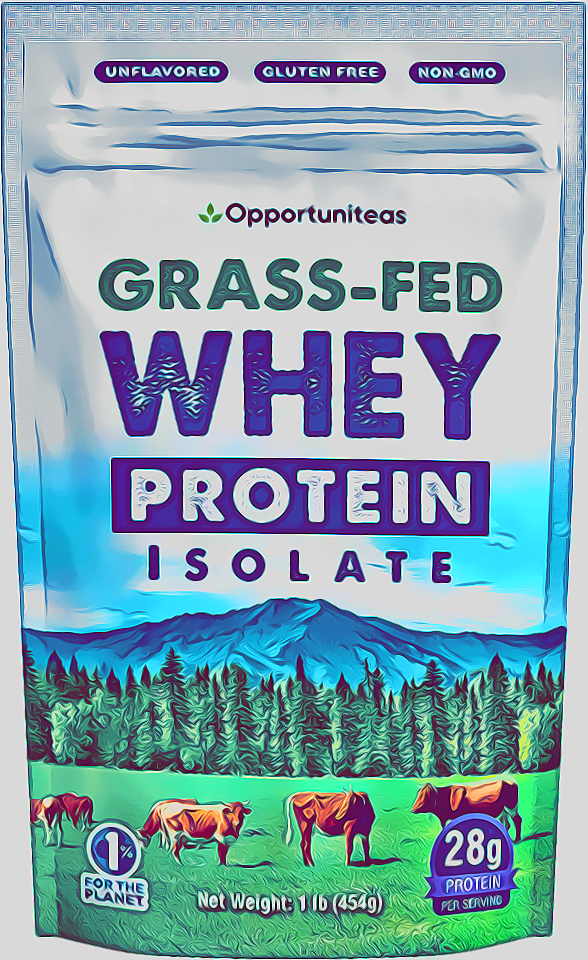
Opportuniteas Grass Fed Whey Protein Powder Isolate
Made From Grass Fed Cow From New Zealand
Great Things About This Product
If you're looking for a protein powder that is both lactose-free and grass-fed, then look no further than Grass Fed Whey Protein Powder Isolate from Opportuniteas.
This premium protein powder is made from the milk of grass-fed, hormone-free cows raised in New Zealand and is low-temperature dried to preserve its quality.
Each serving provides 28 grams of all-natural protein, making it an ideal pre-or post-workout supplement for your next shake, smoothie, or recipe.
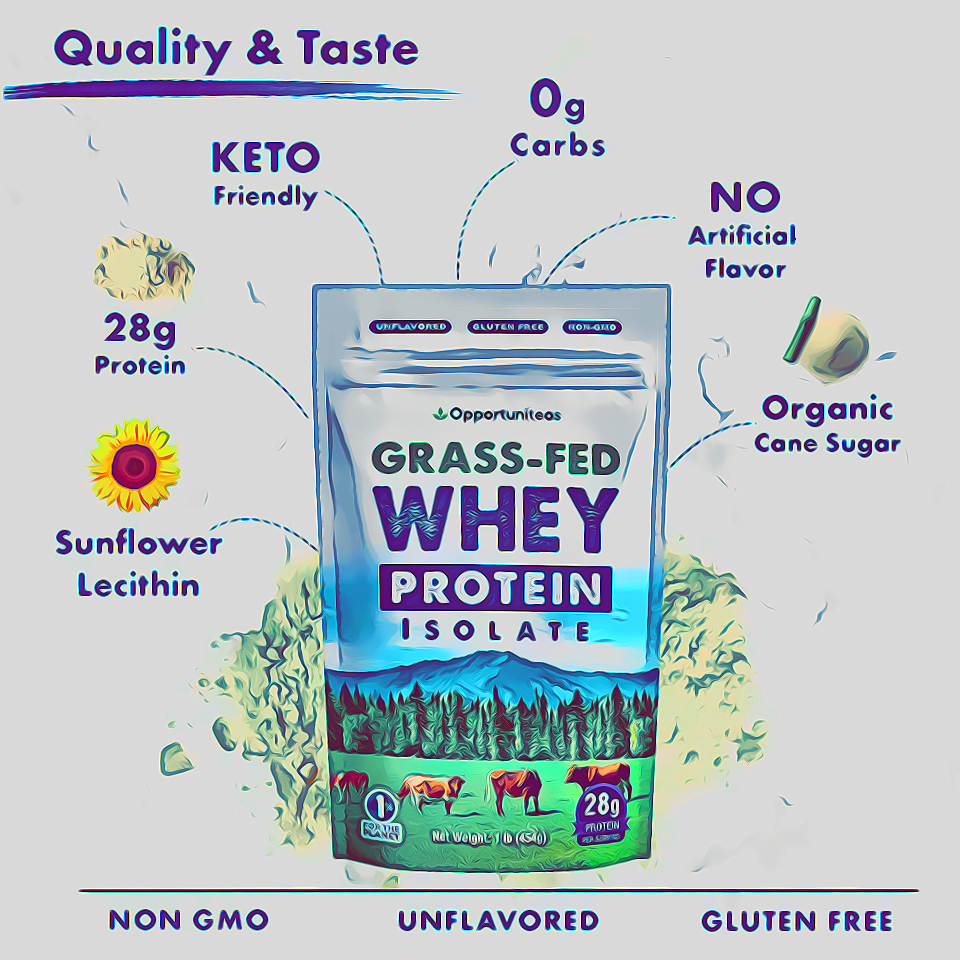
Good Things to Know About Opportuniteas Grass Fed Whey Protein Powder
Additionally, this easy-to-digest protein powder is non-GMO and gluten-free, making it an excellent choice for those with a sensitive stomach. So why wait? Get the best of both worlds with Grass Fed Whey Protein Powder Isolate from Opportuniteas today!
Pros
- Easily digestible and flavorless
- Protein-rich
- Each serving contains 144mg of calcium
- Artificial ingredients are not used
Cons
- It is more expensive than some other protein powders
- It is less cost-effective because the package is smaller than average
Great things about this product
Dymatize ISO 100 Whey Protein Powder is a hydrolyzed, 100% whey protein isolate that is easy on the stomach and perfect for those following a keto diet or low carb diet.
It is a complete protein powder. With 25 grams of protein and only 1 gram of sugar and fat per serving, ISO100 can help support your goals of gains in muscle size and strength.
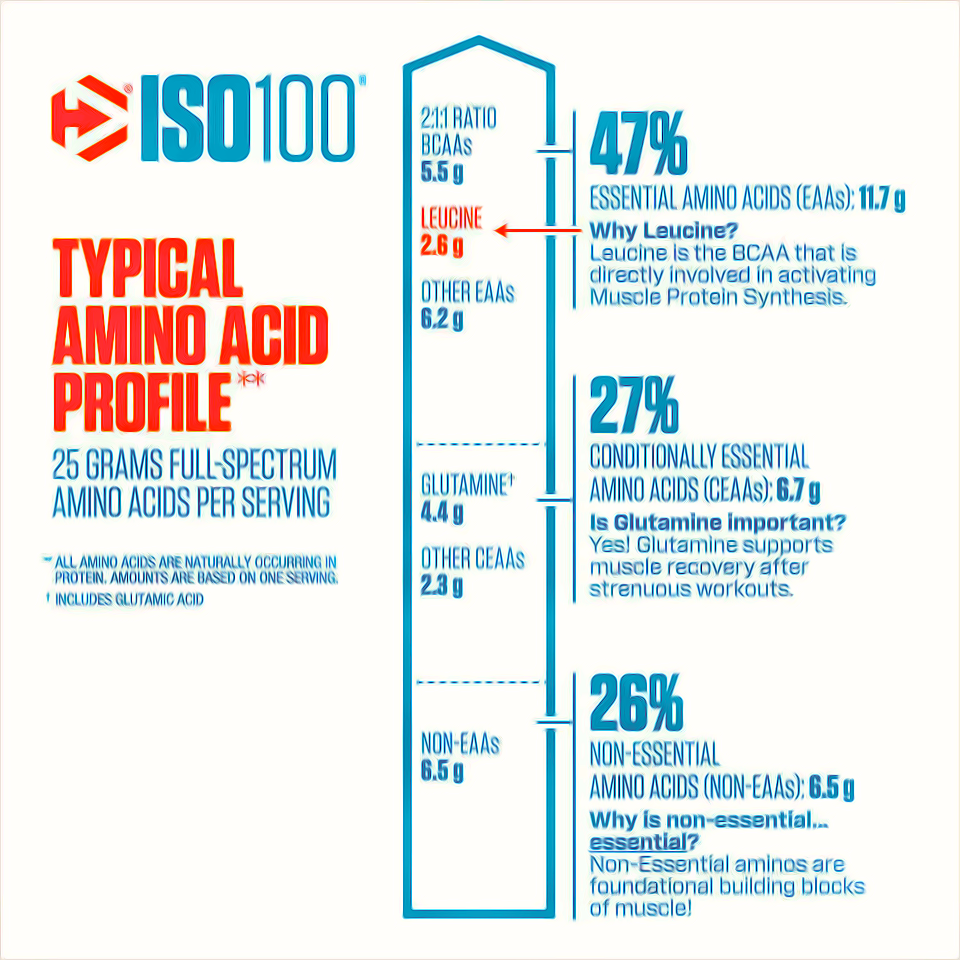
Good Things to Know About Dymatize ISO 100
This protein powder is gluten free and contains less than 0.5 grams of lactose, making it an excellent choice for those with sensitivities.
With 110-120 calories per serving, ISO100 is a delicious and nutritious way to fuel your body before or after a workout.
Pros
- There are tons of flavors to choose from
- There are many sizing options, including bulk sizing.
- Each serving contains 100 milligrams of calcium and 250 milligrams of potassium.
Cons
- Artificially flavored
- It contains sucralose, which some people find off-putting
- Some people find the powder to have a bitter aftertaste
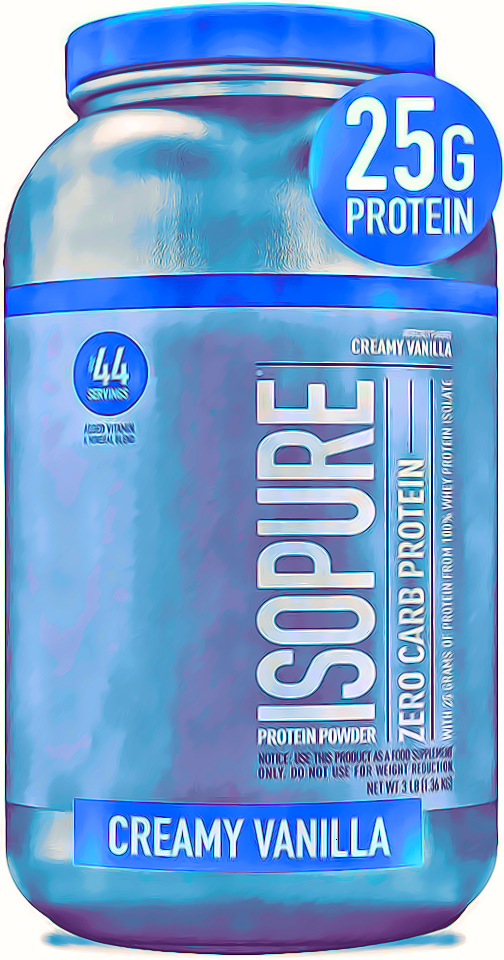
Isopure Creamy Vanilla Whey Isolate Protein
Great Choice for Sensitive People and is also Keto Friendly
Great Things About This Product
Isopure Creamy Vanilla Whey Protein Isolate Powder is an excellent choice for those following a keto diet or low carb diet.
With 25 grams of protein and only 1 gram of sugar and fat per serving, Isopure can help support your goals of gains in muscle size and strength.
Additionally, this protein powder is gluten free and contains less than 0.5 grams of lactose, making it an excellent choice for those with sensitivities.
With 110-120 calories per serving, Isopure is a delicious and nutritious way to fuel your body before or after a workout.
Additionally, the added vitamin and mineral blend provides immune support and can help you reach your daily nutrient goals.
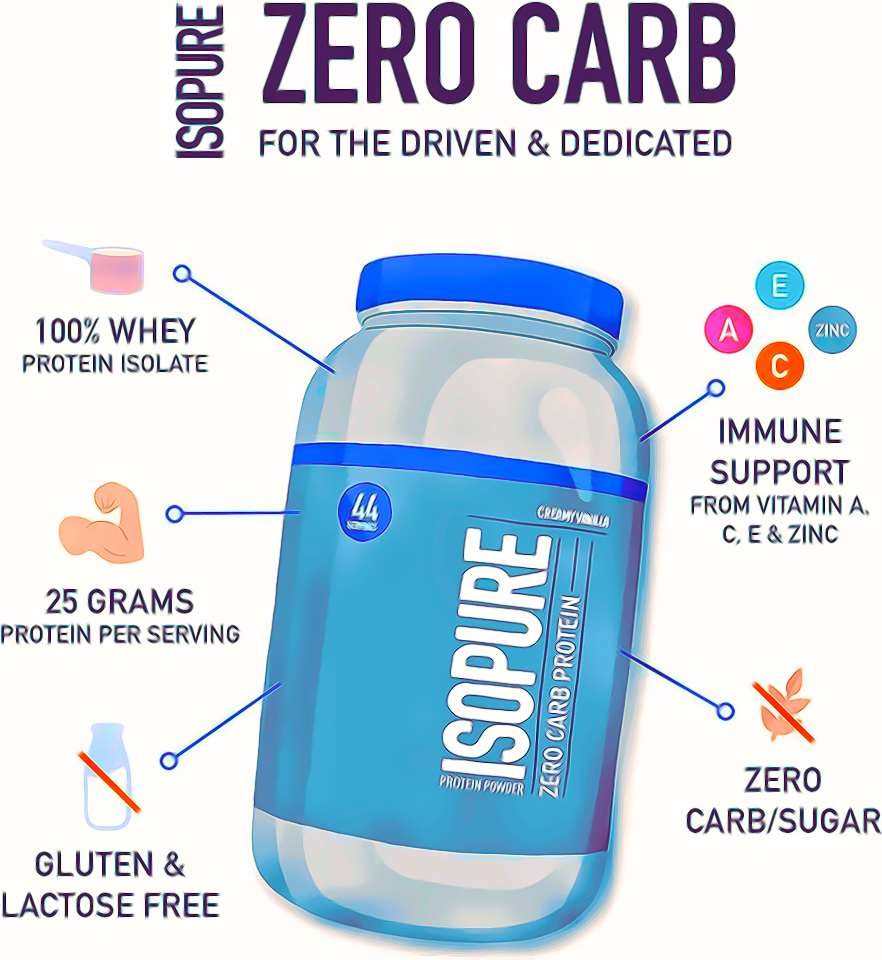
Good things to know
The isopure protein supplements provide muscle strength so that the body can resist deformation while exercising. As an effective muscle builder, it rapidly gets absorbed into the muscles to kick start the muscle recovery process after a workout.
Pros
- Nine different flavors are available (including Strawberries & Cream, Toasted Coconut, and Creamy Vanilla).
- Protein-rich
- It is a good source of vitamins and minerals
- The product comes in four different sizes (1lb, 3lb, 4.5lb, and 7.5lb).
- It blends well without a blender.
Cons
- Sucralose is used as a sweetener, which some people dislike
- There are mixed opinions about the flavor options
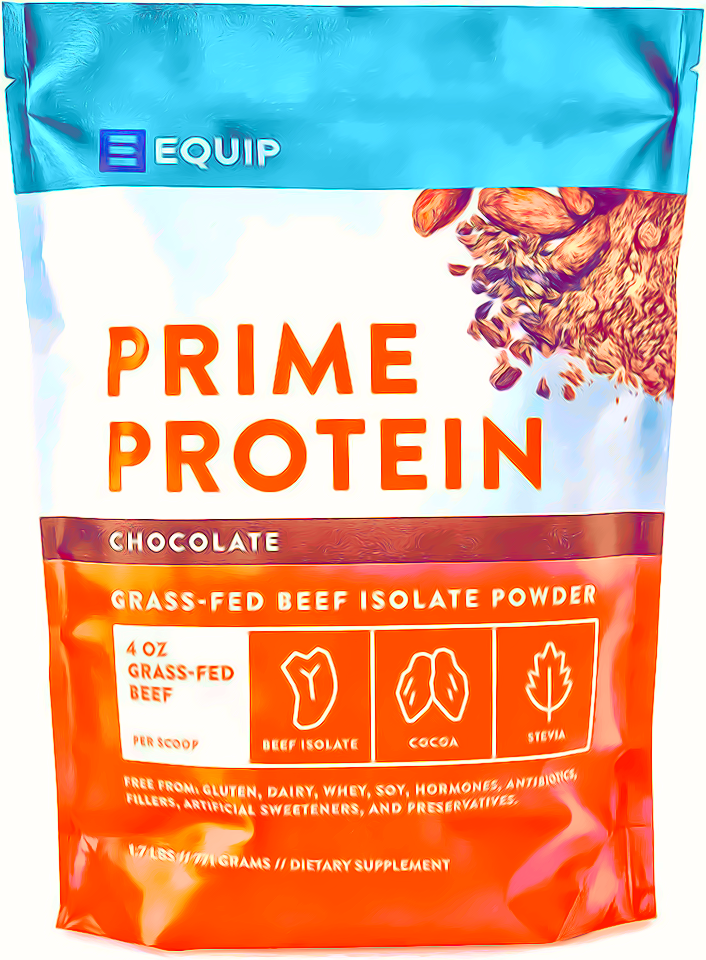
Equip Foods Prime Protein
Grass Fed & Free of Added Sugar
Great things about this product
If you're looking for a protein powder that's lactose-free, grass-fed, and free of added sugar, Equip Foods Prime Protein is a great option.
This beef protein powder is packed with 20+ grams of protein per serving and collagen, gelatin, and micro-nutrients that can help build and repair muscle.
It's also low in calories and fat, making it an excellent choice for those watching their weight.
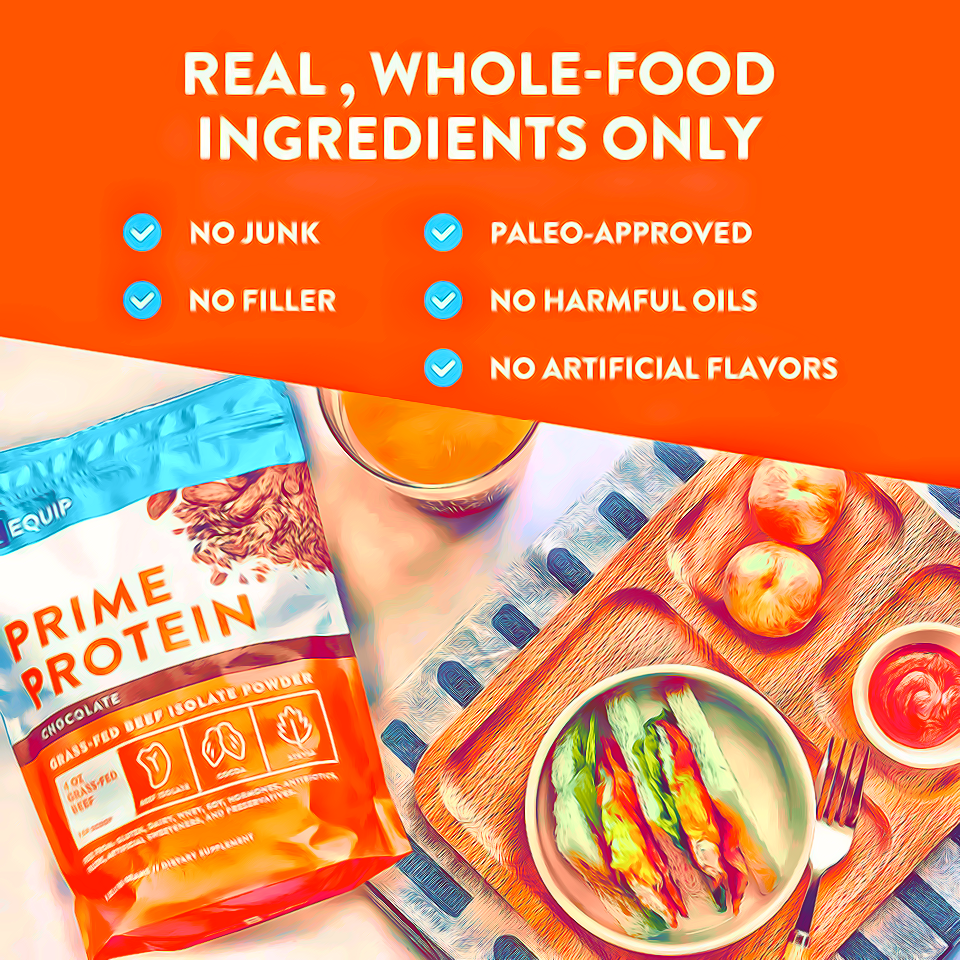
Good Things to Know
Prime Protein is available in four delicious flavors and can be added to any drink or recipe for a boost of protein. Plus, with Equip Foods' 100% Happiness Guarantee, you can be sure you're making a risk-free purchase.
Pros
- It contains collagen peptides and gelatin from beef for healthier hair, skin, nails, and joints
- A low-calorie protein powder
- Includes all the essential amino acids
- Contains no additives
Cons
- There are only two flavors available (chocolate and vanilla)
- The price per serving is higher than average
- Stevia sweetens it, which leaves a strong aftertaste
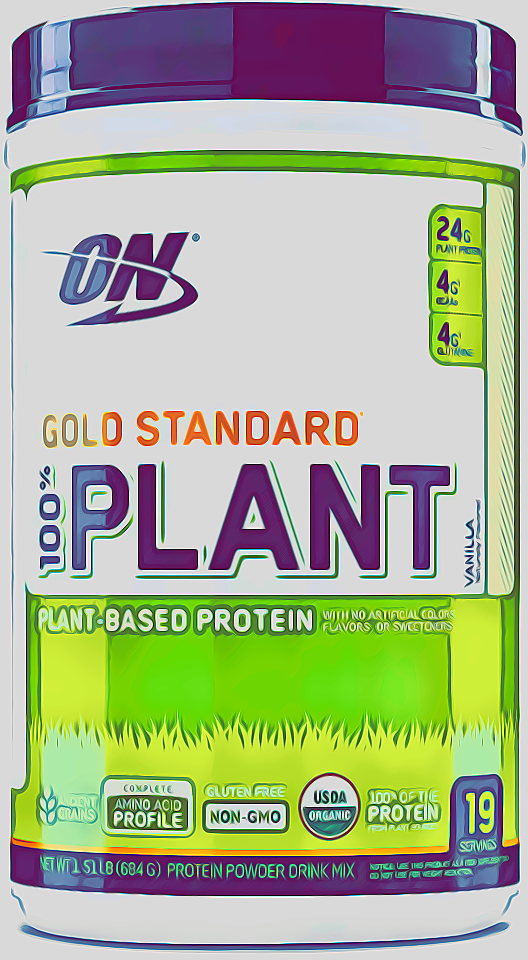
Optimum Nutrition Gold Protein Powder
Great for Recovering From Strenuous Workouts
Great things about this product
If you're looking for a delicious lactose-free protein powder, look no further than Optimum Nutrition's Gold Standard 100% Organic Plant-Based Protein Powder.
This organic powder is perfect for those interested in boosting their immune system with Vitamin C and recovering from strenuous workouts.
The complete amino acid profile helps to support muscle recovery, while the 24 grams of protein come from a blend of organic pea protein, rice, and Sacha Inchi proteins.
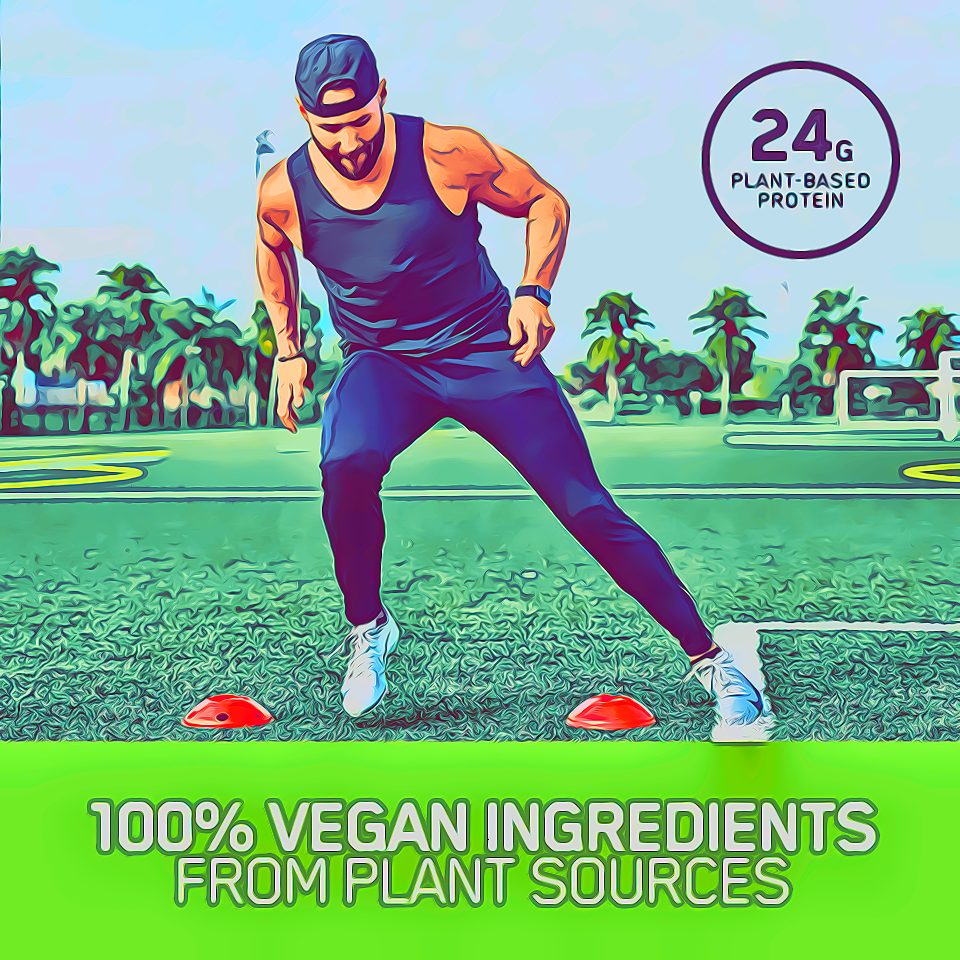
Good Things to Know AboutOptimum Nutrition Gold Protein Powder
You'll love the USDA organic and Non-GMO ingredients, as well as the lack of artificial flavors, colors, or sweeteners. Plus, this gluten-free powder is made with ancient grains Amaranth, Quinoa, Buckwheat, Millet, and Chia.
Add a scoop of this organic powder to your favorite beverage for a delicious way to fuel your body.
Pros
- The product is vegan-friendly
- No GMOs, artificial flavors, artificial colors, or other additives
- An excellent source of protein
- Easily mixes with water, milk, and other liquids
Cons
- The price per serving is higher than average
- There are only 19 servings per container
- There are only two flavors available (chocolate and vanilla)
- It contains more carbs and is not suitable for keto diets or very low-carb diets
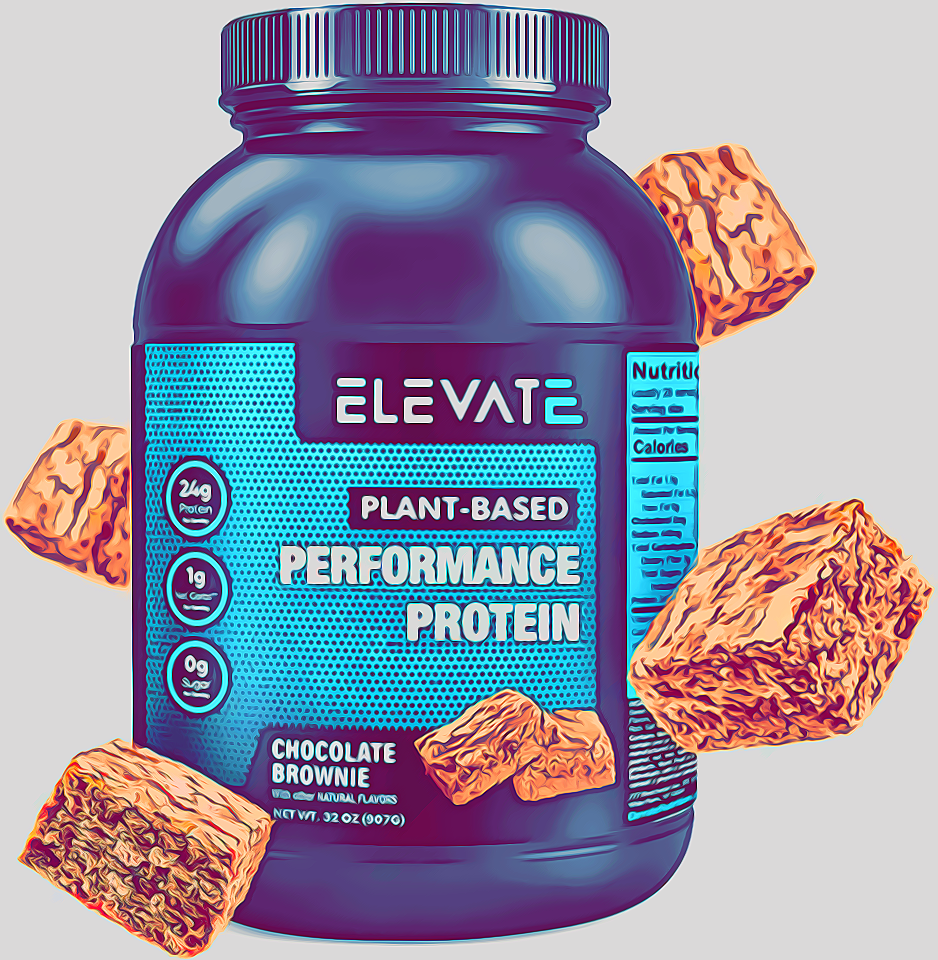
ELEVATE Plant Based Vegan Protein Powder
Certified Vegan, Low-Carb & Keto Friendly
Great things about this product
If you're looking for a plant-based protein powder high in BCAAs and Glutamine, low in carbs, and dairy and soy free, Elevate Nutrition's Protein Powder is the perfect choice for you.
This protein powder is designed to support energy levels, boost protein synthesis, and maximize your results. With no artificial ingredients, you can be assured you're getting the highest quality plant protein powder available.
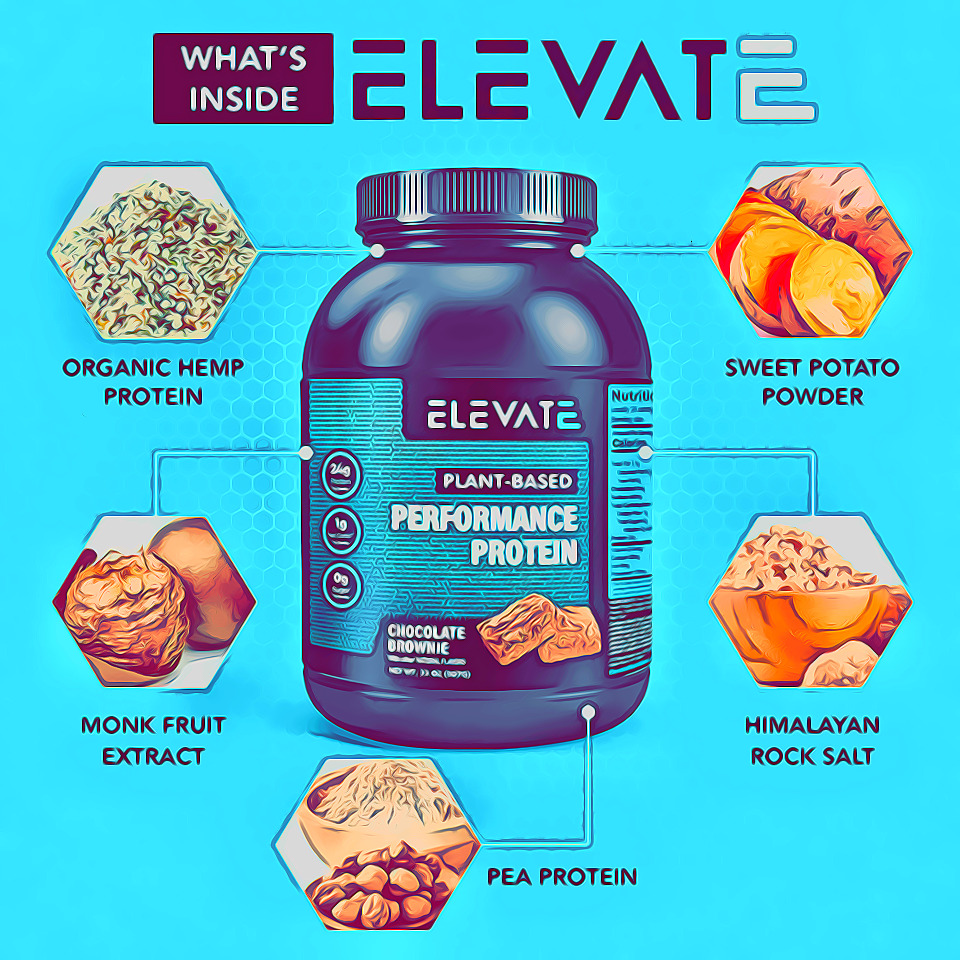
Good Things to Know
ELEVATE Plant Based Vegan Protein Powder mixes easily and has a smooth consistency that makes it perfect for shakes or snacks. And, with delicious flavors like Vanilla Milkshake and Chocolate Brownie, you'll be sure to enjoy every sip.
Pros
- No artificial flavors, GMOs, or additives in the ingredient list
- This product is certified vegan
- It contains all essential amino acids
- Contains no gluten
- Low-carb and keto-friendly
Cons
- Flavor options are limited (only Chocolate Brownies and Vanilla Milkshakes are available)
- The flavor has mixed reviews, and some people find it bitter (especially the Chocolate Brownie flavor).
Lactose-Free Protein Powder Buying Guide
When buying lactose-free protein powder, there are a few things you should keep in mind to ensure you're getting the best product for your needs:
Consider what type of protein powder you want. There are whey-based powders, which are typically higher in protein and BCAAs, and casein-based powders, which tend to be slower digesting and great for post-workout recovery.
- Think about what flavors you prefer. Many lactose-free protein powders are available in popular flavors like chocolate and vanilla, but there are also unique flavors like mocha and cookies & cream.
- Consider your budget. Lactose-free protein powders can range in price, depending on the quality of the ingredients and the amount of protein per serving. By keeping these factors in mind, you can narrow down your options and find the perfect lactose-free protein powder for your needs.
What Is Lactose Intolerance?
Lactose intolerance is a condition in which the body cannot digest lactose, a sugar found in milk and other dairy products.
Lactose intolerance is caused by a deficiency of the enzyme lactase, which breaks down lactose into glucose and galactose, two simple sugars that can be absorbed into the bloodstream.
Symptoms of lactose intolerance include abdominal pain, bloating, gas, and diarrhea. Lactose intolerance is treated by avoiding foods that contain lactose.
People with lactose intolerance can usually tolerate small amounts of lactose, so it is often possible to eat dairy products if they are consumed with other food or in small quantities.
Some people with lactose intolerance take supplements that contain lactase, which allows them to eat foods that contain lactose without experiencing symptoms.
How Do You Know if You Need a Lactose-Free Protein Powder?
If you're lactose intolerant, you know the drill: Dairy gives you gas, bloating, and abdominal pain. So you avoid it at all costs. But what about protein powder? If it's derived from milk, does that mean it's off-limits?
Here's the thing: Lactose is a type of sugar found in milk and other dairy products. When you're lactose intolerant, it means your body can't break down lactose into glucose and galactose (simple sugars that can be used for energy). As a result, the lactose ferments in your gut, leading to gas, bloating, and abdominal pain.
Protein powder is made by extracting the protein from milk (usually whey or casein). This process removes most of the lactose. So if you're lactose intolerant, you can probably tolerate a small amount of protein powder without any issues.
However, some people may be sensitive even to trace amounts of lactose. If that's the case, look for a protein powder that's labeled "lactose-free." These products have been processed to remove all traces of lactose.
Types of Lactose-Free Protein Powders
There are a few different types of lactose-free protein powders on the market.
- One type is made from whey protein isolate, a pure form of whey protein containing no lactose.
- Another type is made from casein protein, which is a slowly-digesting protein that is also low in lactose.
- Finally, plant-based protein powders are naturally lactose-free, such as those made from rice, hemp, or peas.
Each type of lactose-free protein powder has its own advantages and disadvantages, so it's essential to choose one that best fits your needs.
- Whey protein isolate is the fastest-absorbing protein powder and is ideal for post-workout recovery.
Casein protein powder is a good option for taking before bedtime, as it provides a slow, steady stream of amino acids throughout the night.
- Plant-based protein powders are an excellent option for those who are looking for an alternative to dairy-based proteins. They are generally lower in calories and fat than other protein powders and provide a wide range of essential nutrients.
No matter which type of lactose-free protein powder you choose, read the label carefully to ensure it meets your dietary needs.
What is the Difference between Whey Protein vs Plant Protein?
When it comes to protein powder, there are two major types on the market: whey protein and plant protein. Both have their own benefits and drawbacks, so it's essential to understand the difference before you make a purchase.
- Whey protein is derived from milk and is a complete protein, meaning it contains all of the essential amino acids your body needs. Moreover, it is absorbed by the body very quickly, making it ideal for refueling after a workout. However, whey protein can be difficult to digest for some people, and it's not suitable for those who are lactose intolerant.
- On the other hand, plant protein is derived from sources like soy, rice, or peas. It's not a complete protein, but it can be easily supplemented with other foods to ensure you're getting all of the necessary amino acids. Plant protein is also generally more easily digested than whey protein, and it's suitable for vegans and vegetarians. However, plant protein powders often don't mix as well as whey protein powders, which can have a chalky texture.
So which one is right for you? That depends on your individual needs and preferences. Whey protein is a good choice if you're looking for a quick and easy way to boost your protein intake.
But plant protein might be a better bet if you have trouble digesting dairy or want a vegan-friendly option. Ultimately, the best way to find out is to try both and see which one works better for you.
Are Plant-Based Proteins a Complete Protein Source?
One common misconception about plant proteins is that they are not a complete protein source. This means that they do not contain all of the essential amino acids your body needs. However, this is not necessarily true.
While some plant-based proteins are not complete proteins, others can easily be supplemented with other foods to ensure you get all the necessary amino acids.
For example, rice and beans are not complete proteins on their own, but when eaten together, they provide all of the essential amino acids your body needs. So if you're looking for a complete protein source, check the label of your plant-based protein powder to see if it contains all of the essential amino acids.
What's the Difference Between Grass-Fed vs. Non-Grass-Fed Whey Protein?
If you're looking for a whey protein powder, you may have noticed that some brands offer grass-fed whey protein while others offer non-grass-fed whey protein. So what's the difference?
Grass-fed whey protein is made from cow's milk that is fed a diet of grass rather than grain. This diet is thought to be healthier for the cows, resulting in milk that is higher in nutrients like omega-3 fatty acids. Grass-fed whey protein is also generally more expensive than non-grass-fed whey protein.
1. They're easy to digest. Lactose-free protein powders are easier on the digestive system since they don't contain the lactose molecule that can cause stomach upset for those who are intolerant.
2. They're just as effective as regular protein powders. Don't worry; you won't miss out on any gains by using a lactose-free powder! These powders are just as effective as their regular counterparts when it comes to building muscle and strength.
3. They're ideal for post-workout recovery. Since lactose-free protein powders are easy to digest, they're ideal for post-workout recovery. Your body will be able to quickly absorb the nutrients it needs to repair and rebuild muscle tissue.
4. You'll have fewer tummy troubles. Bloating, gas, and cramps can be a thing of the past with lactose-free protein powders!
So if you're looking for a protein powder that's easy on the stomach and still packed with all the nutrients you need, opt for a lactose-free variety.
Lactose Free Protein Powder FAQ's
Lactose intolerance is a common issue, but it can make it hard to get the protein you need each day.
If you're one of the millions of people who are lactose intolerant, you know that finding a good source of protein can be tough. Most dairy-based proteins are off limits, which leaves you struggling to find an alternative.
Luckily, there is a great lactose free protein powder on the market that can help you meet your daily protein needs. This powder is made with high-quality ingredients and has been designed specifically for people who are lactose intolerant.
Why Is Whey Protein Okay for Lactose Intolerance?
Those suffering from lactose intolerance are often advised to avoid dairy products altogether to avoid negative symptoms. Some people might be confused and wonder why lactose-free whey protein is okay for them to consume. It all comes down to how the milk is processed.
It's important to remember that lactose-free whey protein powders are made of whey protein isolate. Before whey protein isolate is sold or used in protein powders, it's processed multiple
times. During the processing stage, most of the fat and carbohydrates in milk are removed (including sugars like lactose). Almost all of the remaining material is protein.
Since whey protein powder contains no lactose, lactose-intolerant people can consume it without issue. Make sure it's made from whey protein isolate rather than another form, such as whey protein concentrate.
How Can You Tell if a Protein Powder Is Lactose-Free?
To ensure that a protein powder is lactose-free, always read the label before buying it. There will be a note on the label indicating lactose-free powders.
Alternatively, you can look at the ingredients list. Look for whey protein isolate instead of whey protein concentrate when searching for lactose-free whey protein powder.
Is Lactose-Free Protein Powder Good for Weight Loss?
Weight loss can be aided by adding lactose-free protein powder to your supplement regimen. This is due to a few factors.
- In general, protein supplementation promotes weight loss. In addition to being a satiating macronutrient, protein helps you stay full for longer periods. As a result, you will be less likely to overeat.
- To build and maintain muscle, it is also necessary to consume protein. You should retain as much muscle mass as possible when you're dieting. Having more muscle will increase your metabolism, which will burn more calories.
- Protein powders containing whey protein isolate tend to be lower in calories than those containing whey protein concentrate or hydrolysate. In most cases, they're mostly protein-based, with very few carbohydrates or fats. It makes them a more "macro-friendly" option for people who are tracking their food for weight loss.
Concentrated whey protein is less processed than isolate whey protein. In addition to lactose, it contains carbohydrates and fat in higher concentrations after processing.
Is Lactose-Free Protein Powder Good for Muscle Gain?
While lactose-free protein powders are helpful for those trying to lose weight, they can also be used for weight gain or muscle building. Lactose-free protein powders, especially whey protein powders, contain essential amino acids that help the body recover from workouts and build muscle.
To make your protein shakes more calorie-dense, you may need to add additional ingredients. Also, it's impossible to gain weight and muscle if you don't consume more calories than you burn.
To increase your calorie intake, mix your protein powder with milk instead of water (you can use full-fat coconut milk if you follow a plant-based diet or can't tolerate regular milk). Additionally, you could add nut butter, fruit, nuts, or seeds.
What is the recommended dosage of the best lactose-free protein powder?
Two to three servings of whey protein powder per day are recommended. Your fitness goals will determine what you should do.
Athletes and bodybuilders should consume 1.2 to 1.7 grams of protein per kilo of body weight per day. Lean muscle gain and optimal recovery can be achieved with this amount. In particular, those who are looking to bulk up will need a higher amount of protein powder, mainly if the powder contains a complete amino acid profile.
In contrast, endurance athletes should consume 1.2 to 1.4 grams of protein per kilogram of body weight per day.
What are the possible side effects of consuming lactose-free protein powder?
Protein powder is a popular dietary supplement that is often used to build muscle mass or lose weight. While protein powder is generally safe, there are some potential side effects to be aware of, especially if you have an allergy or intolerance to lactose.
Lactose-free protein powder is made from whey protein isolate, which is a type of protein that has been filtered to remove lactose. This makes it a suitable option for those with lactose intolerance. However, whey protein isolate can also cause some people digestive issues such as bloating, gas, and diarrhea.
Additionally, lactose-free protein powder may contain other ingredients that can cause side effects, such as artificial sweeteners or fillers. As with any dietary supplement, you must speak with your doctor before taking lactose-free protein powder to ensure it is right for you.
Does lactose intolerance affect protein absorption?
According to some findings, dietary lactose may reduce protein and fat absorption, but not calcium absorption, in individuals with low intestinal lactase activity.
Why did I suddenly become lactose intolerant?
It can be caused by a health condition, such as celiac disease or an intestinal infection. However, it can also be heredity or a sign of aging. If you suffer from lactose intolerance, there are ways to manage it.
Does lactose intolerance get worse with age?
Lactose intolerance symptoms can start in childhood or adolescence and worsen with age, though many people do not develop symptoms until later on.
Is almond milk lactose-free?
Since almond milk is not an animal product, it does not contain lactose. As a result, lactose-intolerant people can use it as a substitute. You can use almond milk in any recipe that calls for animal milk. Unsweetened almond milk contains fewer sugars and carbohydrates than animal milk.
How can I reverse lactose intolerance?
Lactose intolerance cannot be cured, but most people can control their symptoms with diet changes. In some cases, lactose intolerance is only temporary and improves within a few days or weeks, such as those caused by gastroenteritis.
What are the four types of lactose intolerance?
Types of lactose intolerance
- Primary lactose intolerance results from aging and is the most common type
- An illness or injury can lead to secondary lactose intolerance
- A congenital or developmental lactose intolerance (being born with the disorder)
- Lactose intolerance develops during development.
Is there a blood test to check for lactose intolerance?
A lactose tolerance test involves drinking lactose solution and giving a blood sample. A blood test will determine how much blood sugar (glucose) is in it. Your blood sugar levels will either rise slowly or not rise at all if you are lactose intolerant.
What kinds of cheese are lactose-free?
It is also possible to tolerate dairy products that are naturally low in lactose for people with lactose intolerance or lactase non-persistence. Cifelli says hard cheeses like cheddar, Colby, Swiss, mozzarella, and Monterey Jack "are virtually lactose-free."
What foods help with lactose intolerance?
You should get enough calcium each day if you are lactose intolerant. The vitamin D in your body aids in the absorption and utilization of calcium. Ensure you consume foods rich in vitamin D, such as eggs, and certain kinds of fish, like salmon. Orange juice and some ready-to-eat cereals also contain vitamin D.
Can lactose intolerance eat chocolate?
If you are lactose intolerant, you don't have to give up chocolate; dairy-free chocolate and extra dark chocolate are just as tasty.
Can you eat pizza if you are lactose intolerant?
In spite of the fact that pizza contains lactose from the cheese, you can still enjoy it if you have been diagnosed with lactose intolerance. Generally speaking, cheese contains less lactose than other dairy products due to the enzymes used to make it.
What is the best Lactose Free Protein Powder for you?
If you are looking for the best lactose free protein powder to help promote weight loss and build or maintain muscle, there are a few things you should keep in mind. The first is that not all powders are created equal – some are better than others at helping with weight loss and muscle growth.
Second, it’s important to find a powder that fits your dietary needs and preferences.
Finally, be sure to do your research before buying any product, as prices and ingredients can vary widely. With these tips in mind, we hope you will be able to find the perfect lactose free protein powder for your individual needs and goals. Here are our top 8 picks again for your convience.
Happy shopping!
Legion WHEY+Whey Protein Powder
Healthy & Delicious
Optimum Nutrition Platinum Hydrowhey Protein Powder
Promotes Muscle Recovery & Growth
Opportuniteas Grass Fed Whey Protein Powder Isolate
Made From Grass Fed Cow From New Zealand
Dymatize ISO 100 Whey Protein Powder
Great for People on Keto Diet
Isopure Creamy Vanilla Whey Isolate Protein
Great Choice for Sensitive People and is also Keto Friendly
Equip Foods Prime Protein
Grass Fed & Free of Added Sugar
Optimum Nutrition Gold Protein Powder
Great for Recovering From Strenuous Workouts
ELEVATE Plant Based Vegan Protein Powder
Certified Vegan, Low-Carb & Keto Friendly
We hope you find your next amazing thing from this report! Each product was independently selected by our editors after reading through many research and reviews to come up with the best selection. RockinReports may collect a small share of sales or other compensation from the links on this page if you decide to buy something (that's how we stay in business). Thanks for reading and enjoy finding your next amazing thing!





